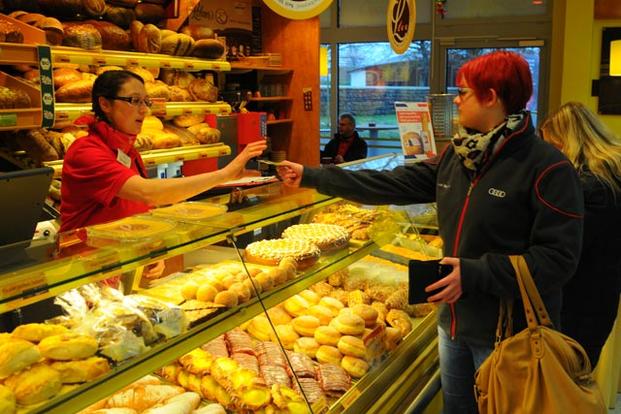Are you:
- Searching for in-demand careers in an established industry but can't see yourself standing all day in a store, smiling at strangers?
- Working the cash register or stock room to earn a few dollars as you take classes to prepare you for a real career?
- An experienced retail operations professional looking for new challenges in the back of the store?
If you answered "yes" to any of these questions, it might be time to take your retail career behind the scenes. But even if you move out of public view, your role will be no less important, and you'll still be part of the excitement generated in a retail environment.
Who's Minding the Store?
Whether it's a bricks-and-mortar operation, catalog, corner kiosk or e-commerce site, the store is the retail world to the customer. Millions of people, from corporate executives to delivery experts, support the processes that get the goods into consumers' shopping carts.
Michael Epstein of the National Retail Federation notes that large retailers tend to have large corporate staffs behind the scenes. In contrast, Epstein says, small retailers may have just one or a few people who wear many nonsales-related hats. Some smaller to midsize retailers may outsource these functions.
Cincinnati-based Federated Department Stores is one of America's largest retailers. Of the company's approximately 130,000 workers, about 30,000 work in a divisional or corporate headquarters, says Federated's Jean Coggan.
It's Not Just Making Deliveries
You may be familiar with careers in buying and store management, but what other corporate retail jobs are out there?
If you like working with numbers, think about:
- Credit card services.
- Finance and accounting positions, which include financial planning and analysis, accounts payable and receivable, payroll and internal auditing.
- Internal purchasing.
- Office administration.
If you're analytical, retailers need:
- Allocations and planning specialists who analyze sales trends and develop and execute distribution strategies and seasonal merchandising plans.
- Inventory planning and control (AKA operations management) specialists.
If you're more interested in people than merchandise, look into:
- Corporate communications.
- Government affairs.
- Human resources, which includes recruiting, compensation and benefits, training and employee relations.
- Legal services.
- Loss prevention.
- Public relations and events planning.
- Safety.
Hands-on people interested in more physical work might prefer:
- Building maintenance.
- Construction management.
- Engineering.
- Mail services.
- Real estate and property development.
- Sanitation.
- Transportation, distribution and logistics, including warehousing and stocking.
Creative types should look for positions in:
- Marketing, advertising and sales promotion.
- Store design.
- Technical design, developing specifications for private-label merchandise.
- Visual merchandising and display.
Are These Really Retail Careers?
Some might argue that these jobs stretch the definition of retail careers. When you work for a retailer, though, no matter what you do, its philosophy and environment permeate everything. You'll be part of the dynamic, fast-paced and competitive world in which professional retailers thrive.
You'll also get the same benefits (store discounts, etc.) as the store personnel, and some of the orientation and training you'll receive may be at a store location. This way, you'll see how your job supports acquiring and retaining customers. Chances are, you may interact regularly with store personnel.
How Do I Get In?
Corporate retail Web sites are great places to find a retailer's nonsales opportunities. A caveat: If you don't live near a regional office or corporate headquarters, opportunities will be limited unless you're willing to relocate.
If you're in college, explore student internships, as well as summer or temp retail jobs. If you work on a research project and want to see how an academic theory or process applies to an industry, think about retail. If you've been a salesperson or cashier, ask your company's human resources department about other career paths. You may need to go back to school, but many retailers offer generous educational benefits, such as tuition reimbursement or scholarships.
Next time you're at the mall, leafing through a catalog or browsing a retail Web site, remember the people behind the scenes when you ask yourself, "How did all this merchandise get here?" Maybe one of the hidden retailers will be you.
Visit the Retail Career Center to find retail job opportunities.











